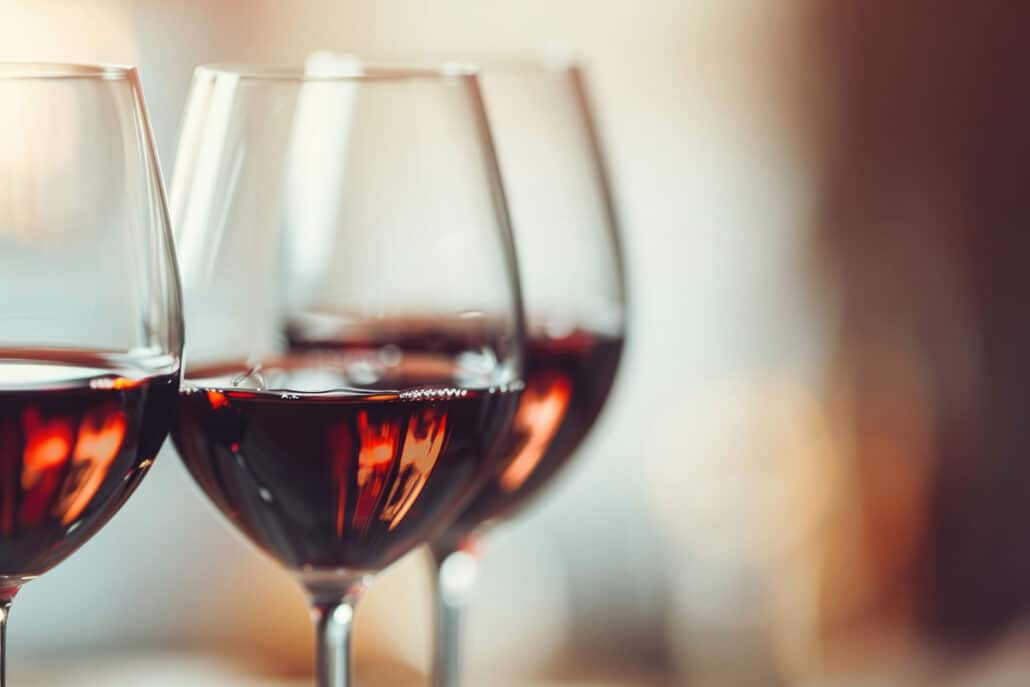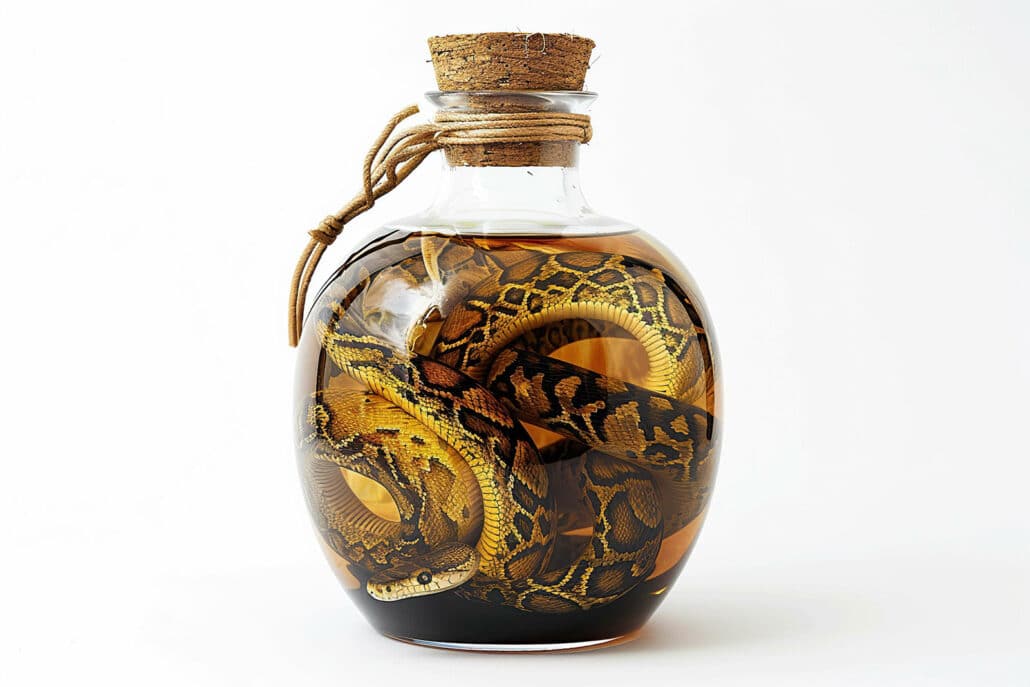While no one knows when humans first started fermenting and drinking alcohol, we do have early records of alcohol consumption from China. This early usage occurred around 9,000 years ago. At the time, alcohol was made from fermented millet, honey, grapes, and rice.
Although too much alcohol can be dangerous, the risk level generally reduces as someone starts to consume less. For example, the incidence of cancer declines if you drink less. This risk level increases when you consume more. To learn more about alcohol’s role in the body and weird historical facts, read on.

Table of Contents
The Surprising Effects of Alcohol on the Body
In the short run, alcohol can cause alcohol poisoning or a hangover if you overindulge. However, it can also increase the likelihood of accidents, risky behavior, and violent arguments. Alcohol lowers inhibitions, so people are more likely to do things they would never normally do. From sleep disruption to impaired memories, there are a range of unusual effects that alcohol can have on the body.
Sleep Disruption
Sometimes, you hear people say that they need a glass of wine to fall asleep. In reality, alcohol may cause your sleep quality to decline. It can worsen insomnia, decrease REM sleep, and trigger sleep apnea.
Memory Impairment
Over time, alcohol can cause gaps in memory. These are commonly known as blackouts. A blackout occurs when the brain isn’t able to transfer your short-term memory into long-term memory storage. Blackouts are more common when someone drinks an excessive amount of alcohol quickly.
Unfortunately, alcohol can also lead to long-term memory impairment. A condition called alcohol-related brain damage (ARBD) can develop after several years of drinking excessively. However, the good news is that a great deal of the memory and thinking issues can be reversed if the individual quits drinking.
Gender Effects
When a young man and woman drink the same amount of alcohol, the alcohol will have a different effect. This isn’t because of size or weight differences. The female body produces less dehydrogenase, which is an enzyme that is known for its ability to break down alcohol within the stomach.
Weird Historical Uses of Alcohol
Since alcohol was first invented, it has been used for a variety of different purposes. It has played a role in pain medication, cleaning, and rituals. From snake wine to roles in the after-life, explore some of the weird historical uses of alcohol.
Medicinal Usage
We have evidence that alcohol was used as an antiseptic as far back as the 1300s. Before painkillers and anesthesia existed, alcohol was routinely used to numb pain during medical procedures.
Cholera Prevention
Today, municipalities use modern filtration techniques to supply water to homeowners. Before clean water was available, water was often filled with bacteria. By drinking alcohol instead of water, people could avoid getting ill from cholera.

Snake Wine
In several parts of Asia, you can get a specialty known as snake wine. This drink is made by infusing an entire snake in rice wine. The proteins in the snake venom are unfolded by ethanol in the alcohol, which renders it mostly safe to drink. The first recorded incidence of snake wine occurred during the Western Zhou dynasty. While snake wine is said to boost energy and vitality, there are many risks involved in drinking it.
Alcohol’s Use in Rituals
Besides being used as a social lubricant, alcohol has a storied past in human rituals and purification ceremonies. In Japan, Shinto purification ceremonies involve consuming alcohol and offering alcohol to the gods. Meanwhile, many branches of Christianity use sacramental wine.
Odd Alcohol Laws From Around the World
Over the years, many cultures have created unusual laws about alcohol. In the United States, alcohol was banned during Prohibition. Despite the ban on alcohol, alcoholism actually increased during Prohibition. Many people who suffered from an addiction turned to bootlegged alcohol, which could lead to blindness or death.
Alcohol Bans
In 2024, Saudi Arabia opened up its first liquor store in more than 70 years. The original ban was implemented after King Abdulaziz’s son drunkenly shot and killed a British consular officer. Despite the new liquor store, the majority of Muslims in the country still abstain from drinking alcohol.
Saudi Arabia isn’t the only place with alcohol bans. Since 1965, Kuwait has banned the sale and purchase of liquor. In Oman, Pakistan, and Qatar, Muslims are banned from drinking alcohol. However, non-Muslims can get a permit to sell alcohol in their hotels and restaurants.
Bangladesh, Iran, and Libya all have bans on alcohol. However, many people in these countries still drink because of blackmarket sales, homemade alcohol production, and international smuggling.
Weird Laws
Over the years, a number of unusual laws have developed around the drinking of alcohol. For instance, the United States is known for having dry counties. In these counties, alcohol sales are prohibited, so residents typically drive to the next county to buy their alcohol.
When California’s craft distilleries first started to grow, they couldn’t sell products directly to their customers. By 2018, this changed slightly. As long as customers went through a tasting in the tasting room first, they could buy a bottle.
In Colorado, convenience stores and grocery chains couldn’t sell full-strength beer until 2019. Similarly, Delaware doesn’t allow customers to buy beer or wine in grocery stores.
Meanwhile, people in Hawaii are only allowed one drink at a time. If you decide to buy a drink for a friend, you have to point out your friend to the bartender.
In 2012, Washington made a remarkable change to its weird laws about alcohol sales. Until the law finally changed, liquor could only be sold in state-run liquor stores. Now, liquor can be purchased in any grocery store or shop that has the right permits.
Alcohol Myths Debunked
Over time, many different myths have developed about alcohol. Unfortunately, these myths are untrue and potentially harmful.
Breaking the Seal
There is an urban myth that you’ll have to keep going to the bathroom if you allow yourself to urinate after drinking. In reality, urinating doesn’t change your bladder’s size or capacity. If you try to hold it in for too long, you can increase the likelihood of a urinary tract infection or kidney infection.
This myth likely stems from the way that alcohol affects the bladder. It inhibits vasopressin, which controls the amount of fluid that leaves your body. Additionally, alcohol has a diuretic effect and can irritate your bladder after just 20 minutes of drinking. Because of these effects, drinking alcohol can make you feel like you have to go to the bathroom more frequently.
Alcohol Warms You Up
There is a common myth that alcohol can warm you up. In reality, this sense of warmth is because blood is rushing to your skin’s surface. When you drink, alcohol causes your blood vessels to dilate. This process can actually make you colder. People are more likely to experience hypothermia when they drink because they don’t realize how cold they actually are.
Beer Before Liquor
According to an urban myth, drinking beer before liquor will cause you to feel sick. Unfortunately, drinking beer after liquor won’t make you feel better. In fact, studies show hangovers won’t be better or worse if you consume alcoholic drinks in a specific order. Additionally, mixing drinks won’t impact your hangovers. However, drinking an excessive amount of alcohol will make you feel sick. If you drink too much or too fast, your liver doesn’t have enough time to remove alcohol from the blood.
The Dark Side: Alcohol Abuse Facts
While alcohol has been consumed in a variety of cultures for thousands of years, it can still have a negative effect. The following facts are just a few examples of the dark side of alcohol.
- In the United States, 28.9 million people over the age of 12 have dealt with an alcohol use disorder in the last year.
- Men are more likely to abuse alcohol than women, but alcohol misuse has grown among women over the last few years.
- Alcohol withdrawal can be fatal, which is why it is so important to seek out professional medical help.
- Your genes can increase your likelihood of suffering from alcohol abuse. If a family member has suffered from a substance use disorder, you are more likely to suffer from alcohol abuse as well.
Find Assistance With Alcohol Abuse
If you suffer from alcohol use disorder or struggle with binge drinking or hard liquor, you aren’t alone. At Long Island Interventions, we provide detox and rehab support for people who suffer from alcohol use disorder, including those looking to stop drinking and address issues related to alcoholic beverages. With the right help, you can safely navigate detox and take the first step in your recovery journey. Additionally, our programs offer guidance on understanding the risks associated with underage drinking and support for all ages in achieving long-term sobriety.
Published on: 2024-10-31
Updated on: 2025-04-08

